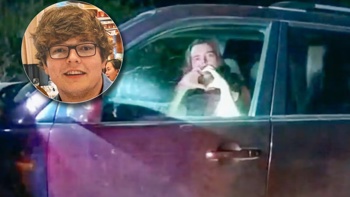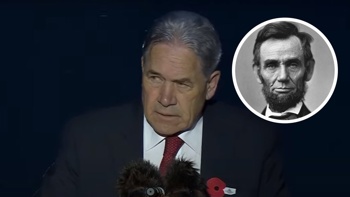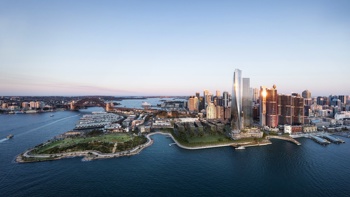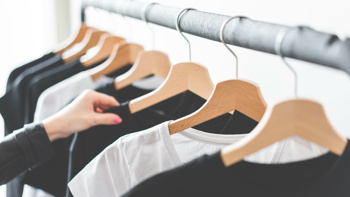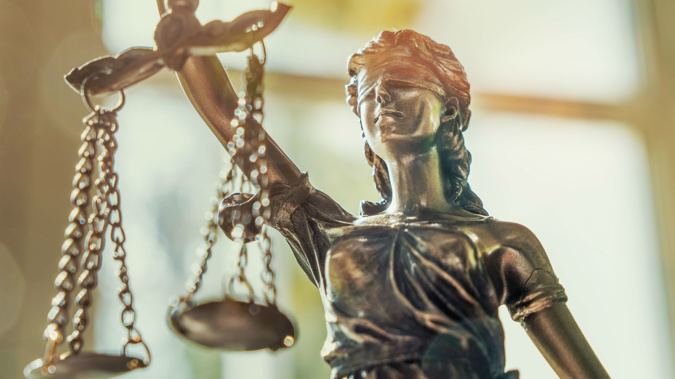
A child sex victim has won her fight to get nude images of her - taken by her mother when she was a young girl being subjected to abuse - banned and classified as objectionable.
In April last year the Herald revealed the woman was seeking the removal of a number of photographs of herself from prominent New Zealand galleries.
The images were taken by her mother and another woman - both artists.
Several of the photographs show the young "subject" completely naked.
The victim claimed all of the photographs were "child pornography masquerading as art" and she has spent the last 12 months campaigning to have them withdrawn from public circulation.
For legal reasons the Herald cannot identify the artist, her daughter or any of the photographs.
It can now be revealed that the victim has successfully had two of the photographs classified as "objectionable" by the Film and Literature Review Board.
Those images are now only available to the victim and cannot be shown anywhere or to anyone else.
The board said the other photos could not "reasonably be regarded as sexual in nature" and did not move to restrict them.
President Rachael Schmidt-McCleave said the board was bound by legislation and could not take further action - but acknowledged the board was "acutely aware of the gap … that means (the victim) appears unable to redress the fact that partially nude photographs of her as a young child have been used in this way".
"I am gratified that two images have been banned," the victim told the Herald.
"More needs to be done to remove the remaining images but this may need a review of current legislation.
"Where naked images of a child have been linked to child abuse, they should be banned - even if they are not overtly sexual - if the subject objects. This is only fair to the victims and protects children from exploitation. I will continue to campaign for this to be the case.
"If the Government is serious about protecting children from child abuse, they need to look at this issue."
The victim asked the Chief Censor to restrict the photos and when that request was rejected, she appealed to the board.
The victim provided the Herald with a copy of the board's decision.
The photographs of the victim showed her nude in various scenes as a child and young person in the 70s and 80s.
They were taken during and after a period of time where she was being sexually abused by a friend of her mother.
He was convicted of that sexual offending in 2011.
The victim made an emotional submission to the board, telling them that the photographs represented her in a way that was harmful - both to her personally and to society.
She said that as a naked child model she was subject to a power imbalance and, combined with the sexual abuse she suffered as a child and young person, she was
"rendered incapable of obtaining justice and exercising consent".
She told the board that if the images were to outlive her they "will continue to remind her of that time of her life, oppressing and humiliating her".
The victim implored the board to view the photographs in the context of her "being a vulnerable, confused child being subjected to grooming by men present in her life and preyed upon sexually".
The victim's mother also made a submission to the board, saying the push to get the photographs banned was "part of an ongoing vendetta".
She argued that the photographs "do not offend anyone except" the victim and they should not be banned.
"(The mother) explained that her work is autobiographical and that the photographs in question were taken in the 1970s and 1980s in the time of a 'different zeitgeist' when she was blinded to 'the male gaze and the detrimental effect on my daughter'," the board decision stated.
"(She) says that she would now not take photographs of someone so young."
She said the photographs represented her "troubling relationship with her daughter" and an "unresolved conflict between artist and mother".
Further, her daughter left New Zealand in her late teens and "rarely returned" and the photographs were her attempt "to come to terms with such a catastrophic loss".
The board considered each photograph individually and in great detail.
After discussions, two photos were banned.
In the first photo the victim was "made up to look older than her years" and had a "come hither" element to her gaze.
"The picture suggests sexual availability and experience, rather than merely being a picture of a naked teenager," said Schmidt-McCleave in her the decision.
"The board is of the view that depicting young persons being older than they are and being sexually available normalises the sexualisation of young women and forms part of a continuous desensitising of the public to the sexualisation of children and young people and is therefore harmful to those children and injurious to the public good.
"Here, the young woman is clearly a young person who has been made to look older and who has had an image composed in a particular way, for a particular effect, namely the conveying of a sexual availability that in reality did not exist, by the use of a picture which conveys a sense of some form of awkward and uncomfortable sexual slave."
The second banned photograph was taken when the victim was 10.
In it, she is completely naked and Schmidt-McCleave said the board considered the photograph to be sexual in nature.
"In the board's view, the image seeks to make a statement about sexual availability and power that ought not to be made in the case of a child or young person," she said.
"There is no doubt that depiction of a child in this way … is injurious."
She said nudity itself was not problematic.
"However society has become increasingly desensitised to notions of children and young people as sexual beings - which they are not.
"Allowing a child or young person to be depicted in this manner reinforces the notion that (they) have some sort of sexual power and increases the vulnerability of sexual abused young people.
"Also of relevance, in the board's opinion, is the impact on such children once they reach adulthood, knowing that sexualised images taken when they were not in a position to consent, exist of them for eternity and potentially in the public domain.
"Research has shown that ongoing reminders of childhood sexual abuse can be extremely damaging for adult victims."
The victim said she was "shocked" by her mother's behaviour.
"I do not want these offensive, exploitative images of me as a young girl to outlive me," she told the Herald.
"There have to be restrictions in place to protect children in the creation of art.
"There needs to be the public will to connect the decadent freedoms of the artistic elite with the horror of mainstream sexual abuse."
Take your Radio, Podcasts and Music with you






